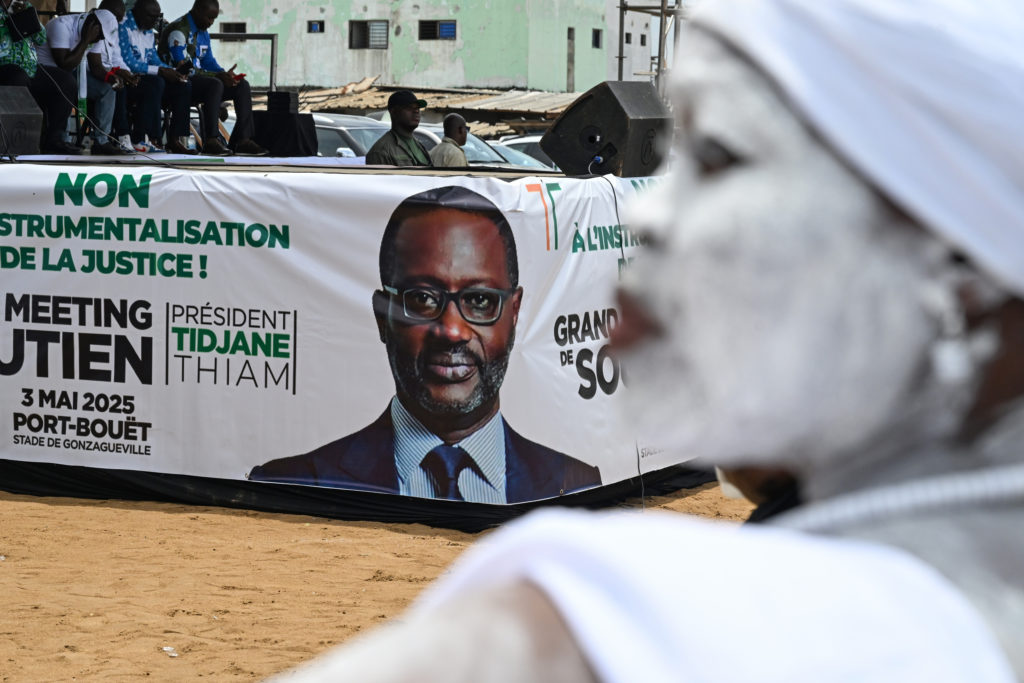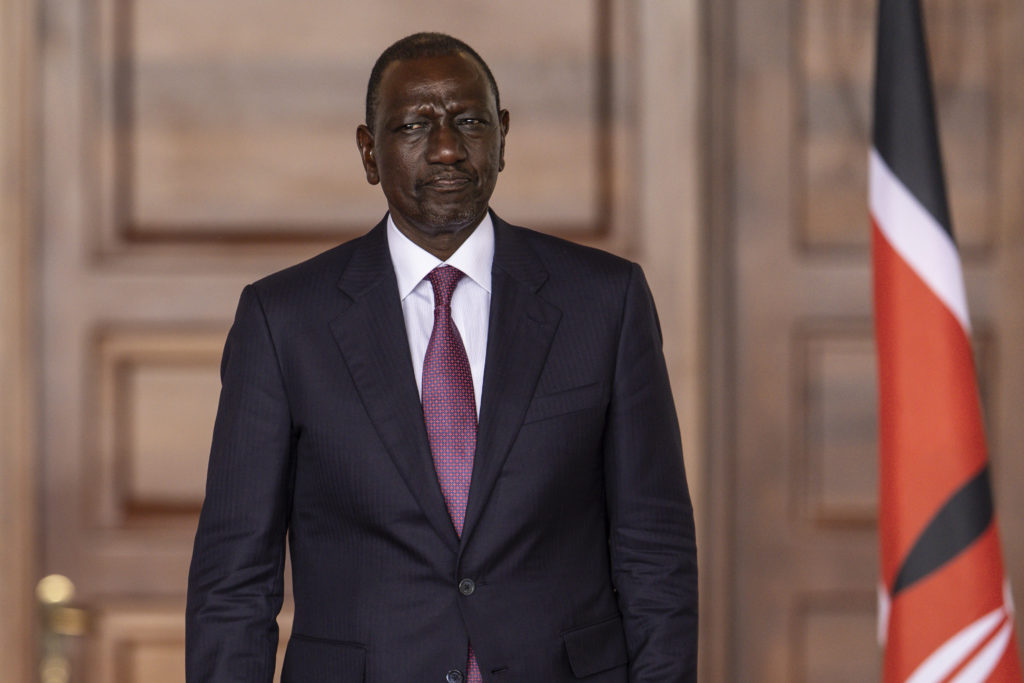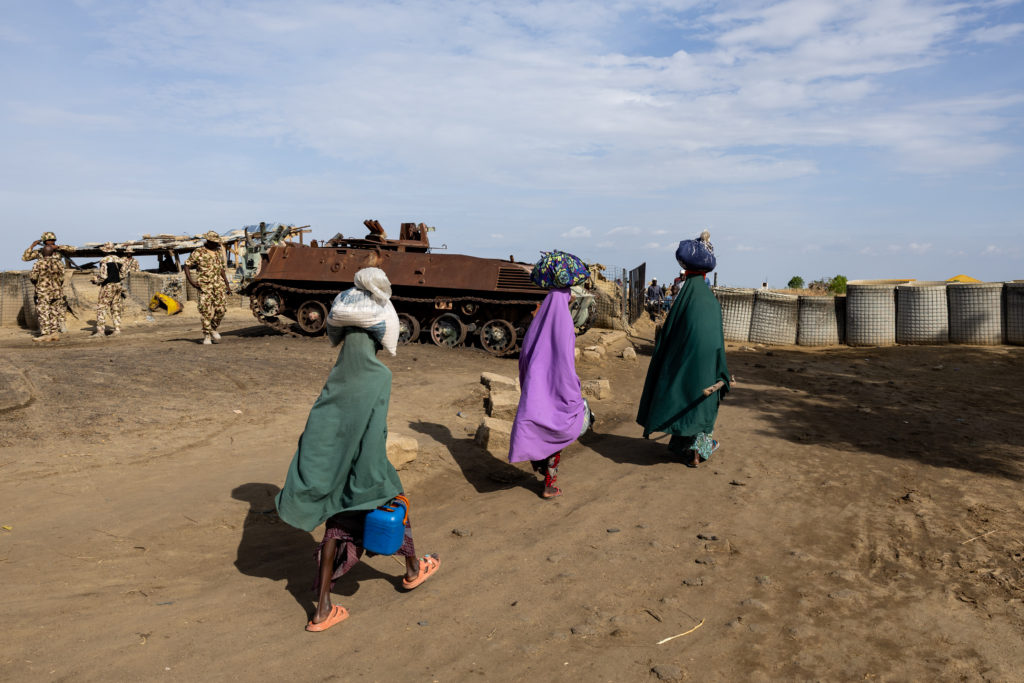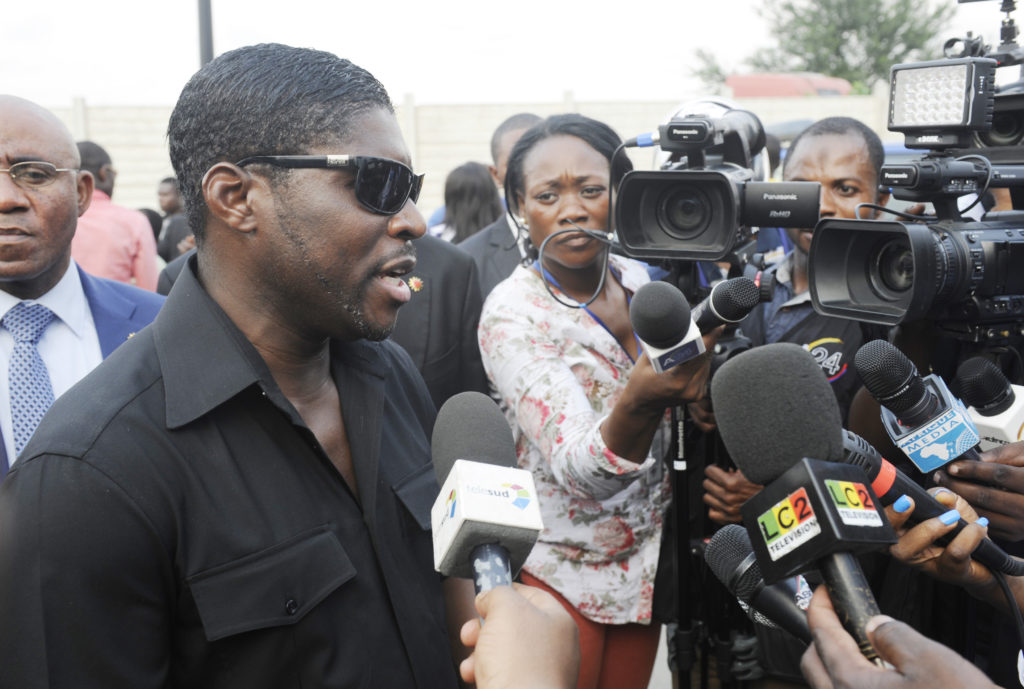Like other Togolese under the age of 60, Elom cannot remember a time when the tiny west African nation was not ruled by a member of the Gnassingbe family.Yet with the economy ground to a halt and the future outlook grim, the 23-year-old university student has joined the protests shaking the streets of the capital Lome since June in the hopes of changing that.”We are tired of this regime… We, the youth, have no hope left,” said Elom, who studies commercial management, surrounded by his fellow university peers.”We need change at the top of the country.”Togo’s ruler Faure Gnassingbe took power in 2005 following the death of his father Eyadema, who had ruled the country for 38 years himself.Gnassingbe’s government has ramped up its crackdown on the rare demonstrations to hit Togo in recent years, with activists blaming the police for the deaths of several marchers in the June unrest.AFP chose not to give the last names of the people interviewed for this story, out of fear they would be arrested for having taken part.But with unemployment rampant, Togo’s mostly young population have become increasingly outspoken in expressing their frustration with their lot.”We, the youth, suffer in this country.
We are hungry,” said protester Anie, 26.Sixty percent of Togo’s eight million-strong population is under 25 years old, while 43 percent live in poverty, according to official figures.With prospects at home dim, more than a third of Togolese are considering moving abroad, according to a March survey by pollster Afrobarometer.- Rapper’s arrest -The June protests were sparked by the arrest and detention in a psychiatric hospital of popular Togolese rapper Aamron.Authorities in late May detained the rapper — who has since been released — after he posted an ironic call on Facebook to celebrate Gnassingbe’s birthday.In the wake of Aamron’s arrest, dozens of outraged young people took to the streets of the capital on June 5, inspired by posts on social media.Besides the economy and the repression of critics of the government, the marchers have also taken aim at a surge in electricity prices and the high rate of unemployment.”Kids go to study but can’t find jobs,” says Glawdys, a 55-year-old shopkeeper in the Hanoukope district who said she “was in the streets to support the youth”.Many are also angry over a 2024 constitutional reform, swapping Togo from a presidential to a parliamentary system, which critics have branded a power grab by Gnassingbe to tighten his grip on the country. “Public administration is rotten with embezzlement and mismanagement”, said 29-year-old motorcycle taxi driver Daniel.For its part the government has branded the marches “attempts at destabilisation”.”Inviting people to engage in gratuitous violence is terrorism,” warned Colonel Hodabalo Awate, Togo’s territorial administration minister.- ‘Back in the streets’ -Seven people were killed across a second wave of protests in late June, according to civil society groups, who blamed the deaths on the police. Prosecutors later announced the opening of an investigation into five deaths, including four by drowning.The victims, fished out from bodies of water near the site of the marches, were aged between 15 and 25. Undeterred, bloggers and artists at the head of the protests have issued calls for fresh anti-government demonstrations during this week’s municipal elections.”I’ll be back in the streets on July 16 and 17 — the fight continues,” said 36-year-old chauffeur Yannick.The protests have also been supported by critics of Gnassingbe living abroad, such as popular investigative journalist Ferdinand Ayite. The government has since announced international warrants for its critics in exile.”Wherever they live, we will go and get them,” Togo’s security minister, Colonel Calixte Madjoulba, has vowed.Unlike previous generations, today’s youth have refused to ally with traditional opposition parties, according to political scientist Mohamed Madi Djabakate.”The insurrection is led by a generation that has not experienced the euphoria of multiparty politics in the 1990s and is now seeking to create its own form of protest, with its own codes, language and modes of action,” he said.In response to the protests, the government’s technical education minister, Isaac Tchiakpe, has argued that clear paths to employment exist for young Togolese.But to cater to Togo’s increasingly educated young people, the country needs to create a million jobs by 2030, according to the World Bank.
Tue, 15 Jul 2025 14:47:04 GMT










